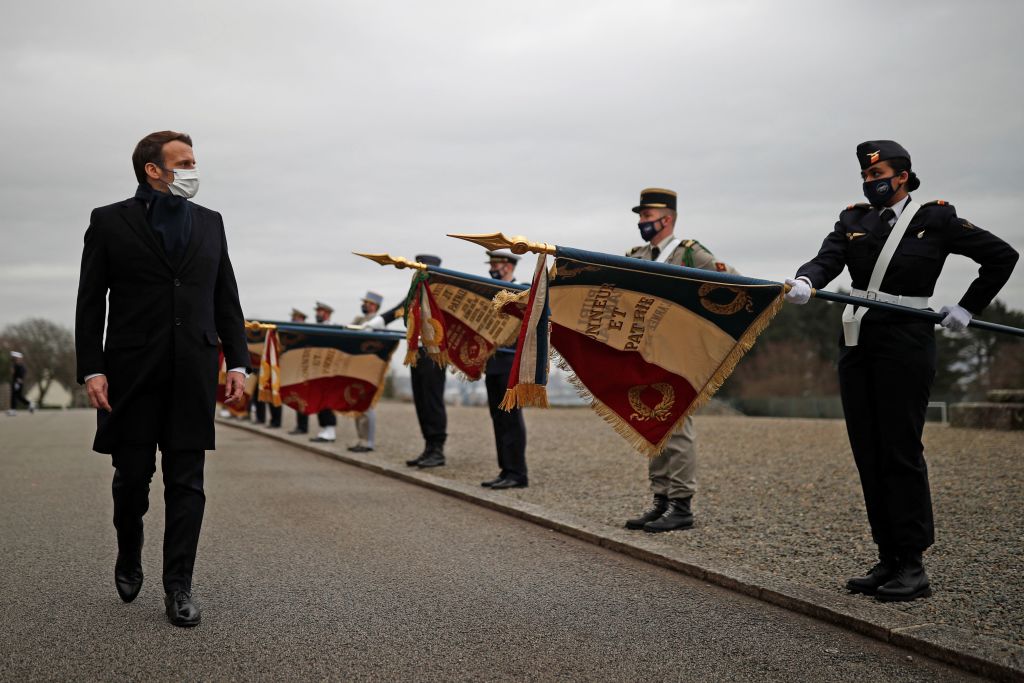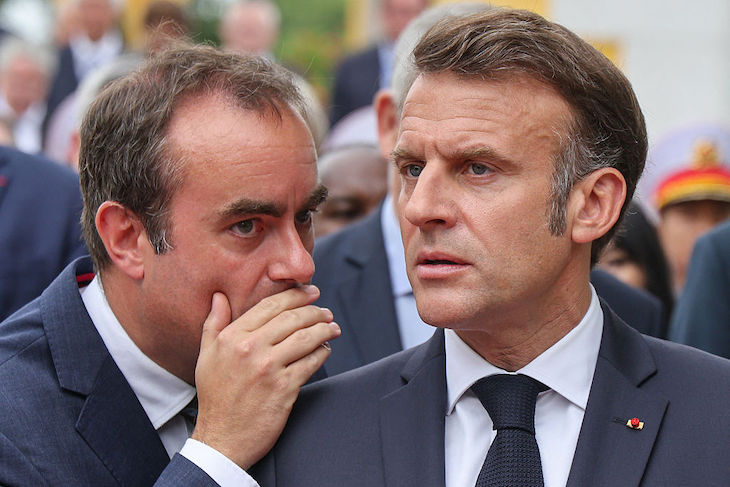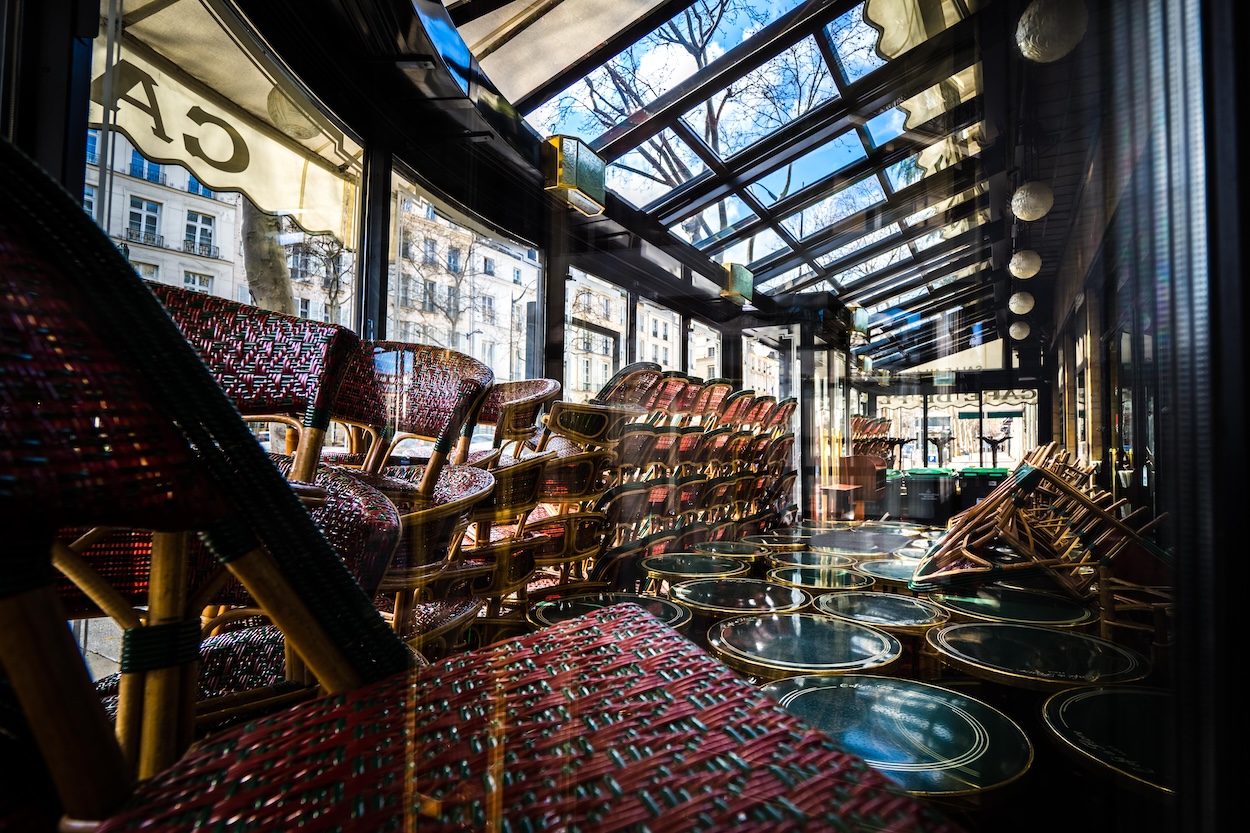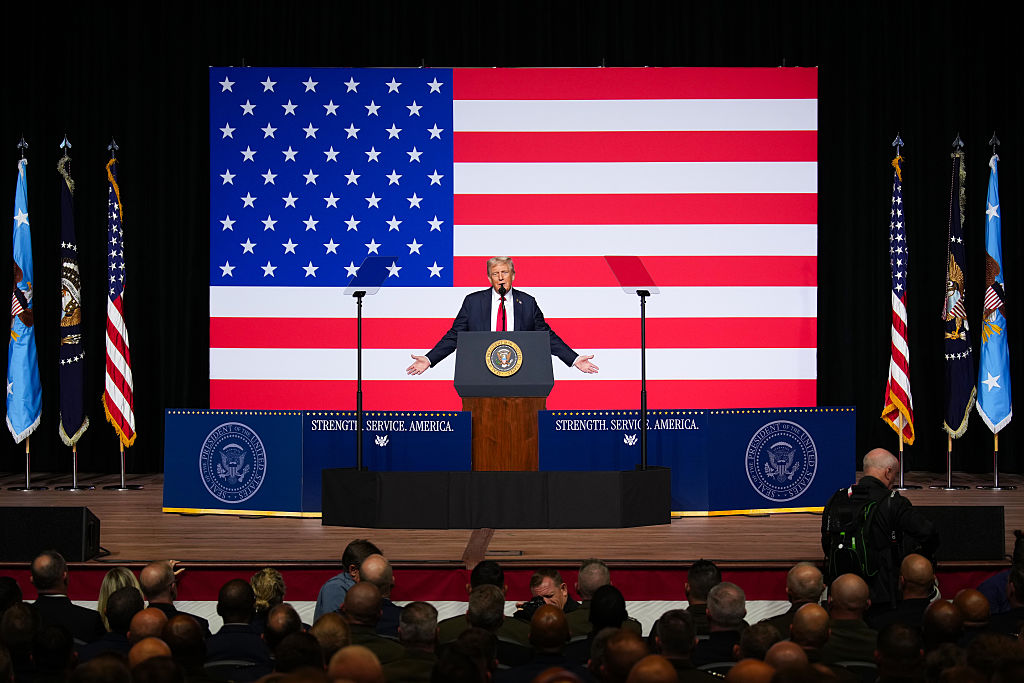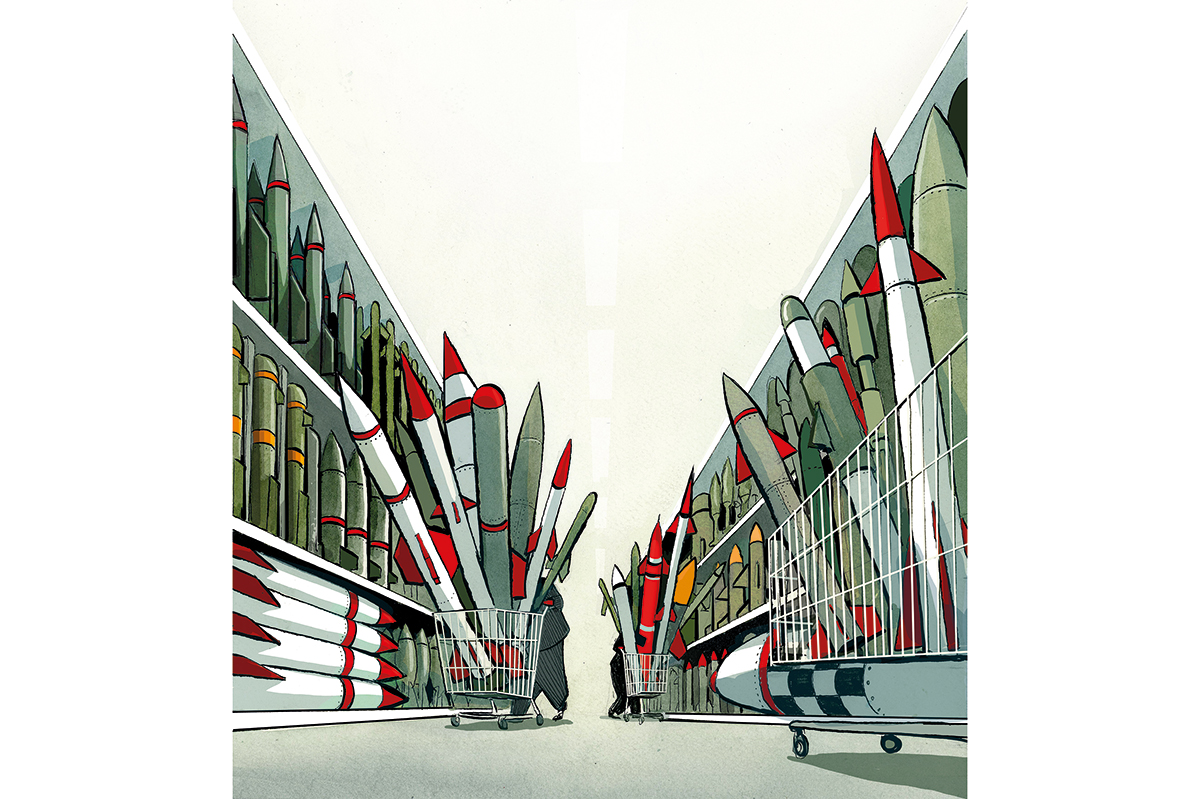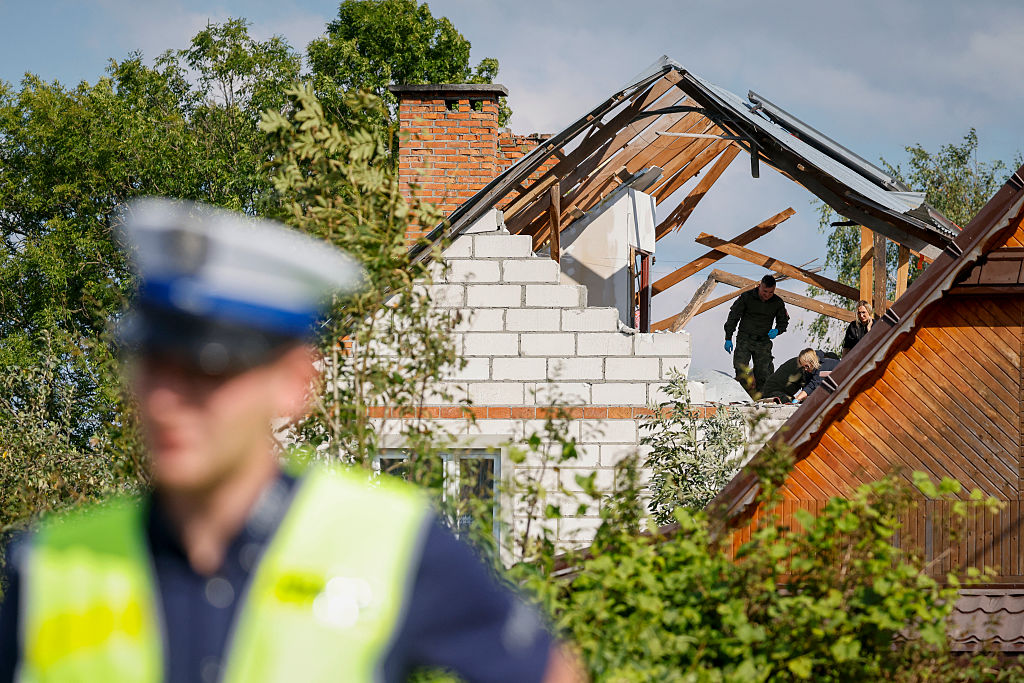Emmanuel Macron was in Strasbourg on Sunday where he addressed the Conference on the Future of Europe. This is where the president of France is happiest, describing the Utopia that he still believes can be achieved by the EU. He feels important and powerful and he is among like-minded people, such as David Sassoli, president of the European Parliament, who declared: ‘This conference is for ordinary citizens. Europe is not just for the elites, nor does it belong to them.’
There’s a touch of the Tony Blair in Macron’s canine devotion to the EU, and it wouldn’t be a surprise if the president accomplishes what eluded the former British prime minister and one day becomes the president of Europe.
It would certainly be an easier life than running France. Barely had Sunday’s conference broken up before news broke of the publication of another open letter to Macron from the French military. Two weeks ago the conservative magazine Valeurs Actuelles published a letter from hundreds of retired soldiers warning the president that the country was going to pot; last night it was the turn of more than 2,000 serving soldiers to express their dismay at what they regard as the ruination of France. Their words will send a chill through the corridors of the Elysée. Jean-Luc Mélenchon the leader of the far-left France Insoumise, has expressed his outrage, promising that if he comes to power he will ‘purge’ the military of these seditionists.
Marine Le Pen offered her ‘respect’ to the military and declared her ‘confidence’ in them in a television interview on Sunday night, and said that the ‘problem with Macron is that the insecurity is now everywhere.’
Even Macron’s staunchest supporter would struggle to shoot down Le Pen on that point. In the last week alone a policeman was shot dead by a suspected drug dealer in Avignon, there were riots in Lyon and Frejús on the Côte d’Azur, and in the 19th arrondissement of Paris rival drug gangs exchanged home-made mortar fire on Monday night. One resident’s group uploaded footage of the explosion onto social media and accused Macron and Anne Hidalgo, the mayor of Paris, of abandoning the area to the drug gangs. ‘You must act, and quick.’ they urged.
That is the message of the latest letter to Macron from his military. But the fact that the initial signatories are supposedly serving men and women will alarm the government. Describing their service for France in Mali, Afghanistan and elsewhere, where some witnessed the deaths of comrades killed in action, they make a grave accusation against their president: ‘They have offered their lives to destroy the Islamism to which you have made concessions on our soil.’
Many of the men and women who signed the letter participated in Operation Sentinel, when troops were deployed in Paris in January 2015 after the Charlie Hebdo massacre, and because of this ‘have seen with our own eyes the abandoned banlieues… where France means nothing but an object of sarcasm, contempt or even hatred.’
This letter, like the first, raises the specter of France being torn apart by conflict. ‘If a civil war breaks out, the military will maintain order on its own soil…civil war is brewing in France and you know it perfectly well,’ they write.
The letter concludes by demanding that instead of scoring political points or playing to the gallery with ‘emotion on command’, Macron and his government act: ‘We are not talking about extending your mandates or conquering others. We are talking about the survival of our country, the survival of your country.’
Macron inherited this towering challenge from his predecessors, who for decades turned a blind eye to the ‘lost territories’ of the inner cities, despite repeated warnings. Now, however, the violence has spread and the hatred deepened, aided and abetted by social media and identity politics. Macron has done more than any other president to try and combat the extremists but it’s not enough.
‘Can the Army Save France?’ is the headline on the front cover of this week’s Valeurs Actuelles. A growing number in France believe that Macron can’t and that the military may be their last hope.
This article was originally published on The Spectator’s UK website.



